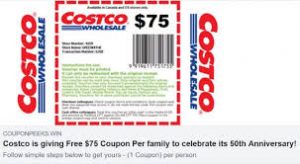
BBB offers the following tips for identifying coupon scams:
- Be skeptical. The better the deal looks, the more likely it’s fake. It is easy for scammers to steal logos and images of established businesses to create counterfeit coupons.
- Check directly with the source. To verify the legitimacy of an offer, visit the company’s website to look for the coupon or directly contact the company.
- Look at the expiration date. Most coupons have one. The lack of one is an indication that the coupon may be phony. Remember, coupons for free items usually expire quicker than others.
- Verify the source. If a coupon comes to you in an email, hover your mouse over the link (without clicking) and the URL destination address should appear. If that address looks like a random assortment of numbers and letters, do not click on it.
- Check to see if the website is secure. There should be an “s” after “http” in the URL to indicate it’s a secure site. No “s” may mean it’s a phishing attempt to get your information or to install malware on your computer.
- Do a web search. Searching by the offer, business name and the word “scam” can often bring up information showing which offers are fake.
- Don’t share your personal information. Legitimate businesses do not ask for private information such as credit card numbers or bank accounts for coupons or giveaways. Any promotional offer that asks for personal information is almost always a scam.



